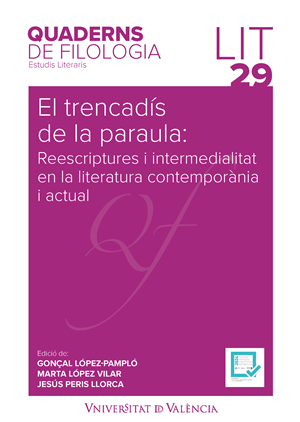La mejor madre del mundo (2019) by Nuria Labari. Questioning the myth of motherhood
DOI:
https://doi.org/10.7203/qdfed.29.28837Keywords:
myth of maternity, Nuria Labari, La mejor madre del mundo Abstract
Abstract
Since the end of the 20th century, and particularly in the literature of the last decade, there has been an increasing number of books written by women that reflect a concern about motherhood and its repercussions on both private and public life, about the relationship between literary creation and procreation, and about the longing for motherhood and the possibility for women to live this experience by dismantling the patriarchal patterns that regulate it. This article aims to offer an analysis of one of the most representative books of this writing, La mejor madre del mundo (2019) by Nuria Labari. In her autofictional book, Labari will question the myth of motherhood and the idea according to which there would be an inexorable destiny given to women, that of being mothers. With the story of her personal experience she shows that, behind motherhood, there is a social construction that relegates women to the background.
 Downloads
Downloads
Downloads
Published
How to Cite
-
Abstract11
-
PDF (Español)1
Issue
Section
License
 Este obra está bajo una licencia de Creative Commons Reconocimiento-NoComercial-SinObraDerivada 4.0 Internacional.
Este obra está bajo una licencia de Creative Commons Reconocimiento-NoComercial-SinObraDerivada 4.0 Internacional.
Authors who publish with this journal agree to the following terms:
- Authors retain copyright and grant the journal right of first publication with the work simultaneously licensed under a Creative Commons Attribution License that allows others to share the work with an acknowledgement of the work's authorship and initial publication in this journal.
- Authors are able to enter into separate, additional contractual arrangements for the non-exclusive distribution of the journal's published version of the work (e.g., post it to an institutional repository or publish it in a book), with an acknowledgement of its initial publication in this journal.
- Authors are permitted and encouraged to post their work online (e.g., in institutional repositories or on their website) prior to and during the submission process, as it can lead to productive exchanges, as well as earlier and greater citation of published work (See The Effect of Open Access).




